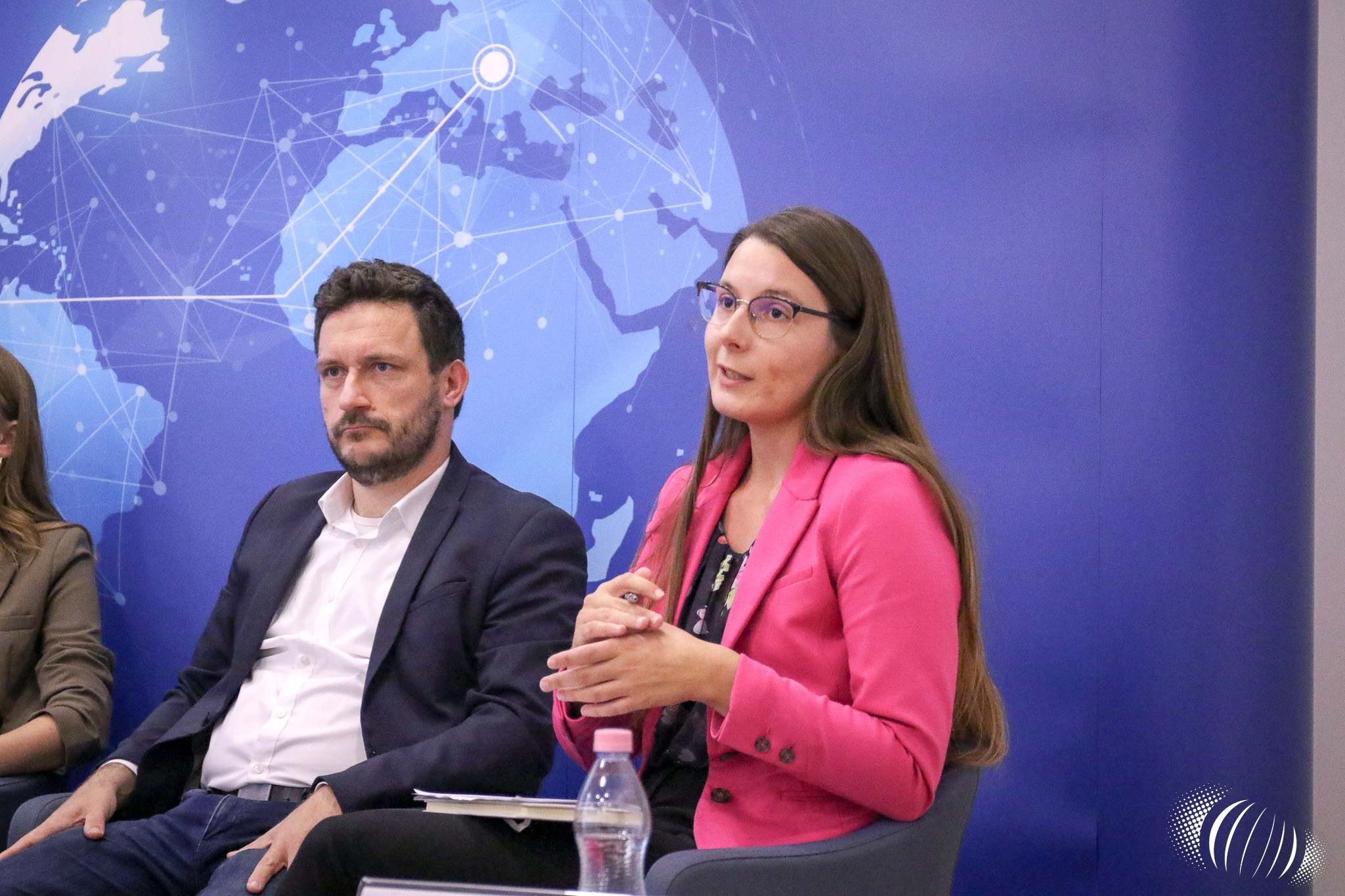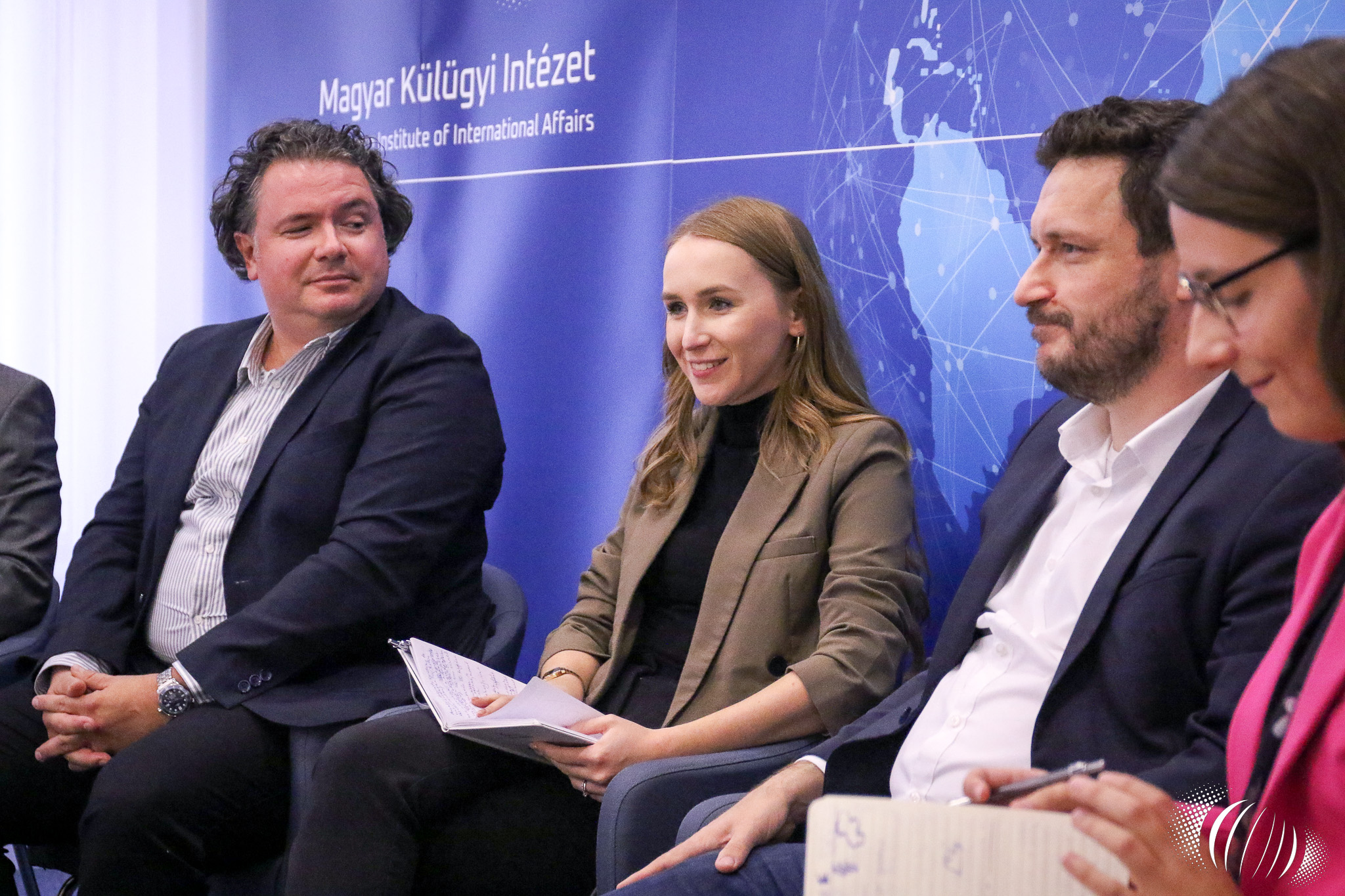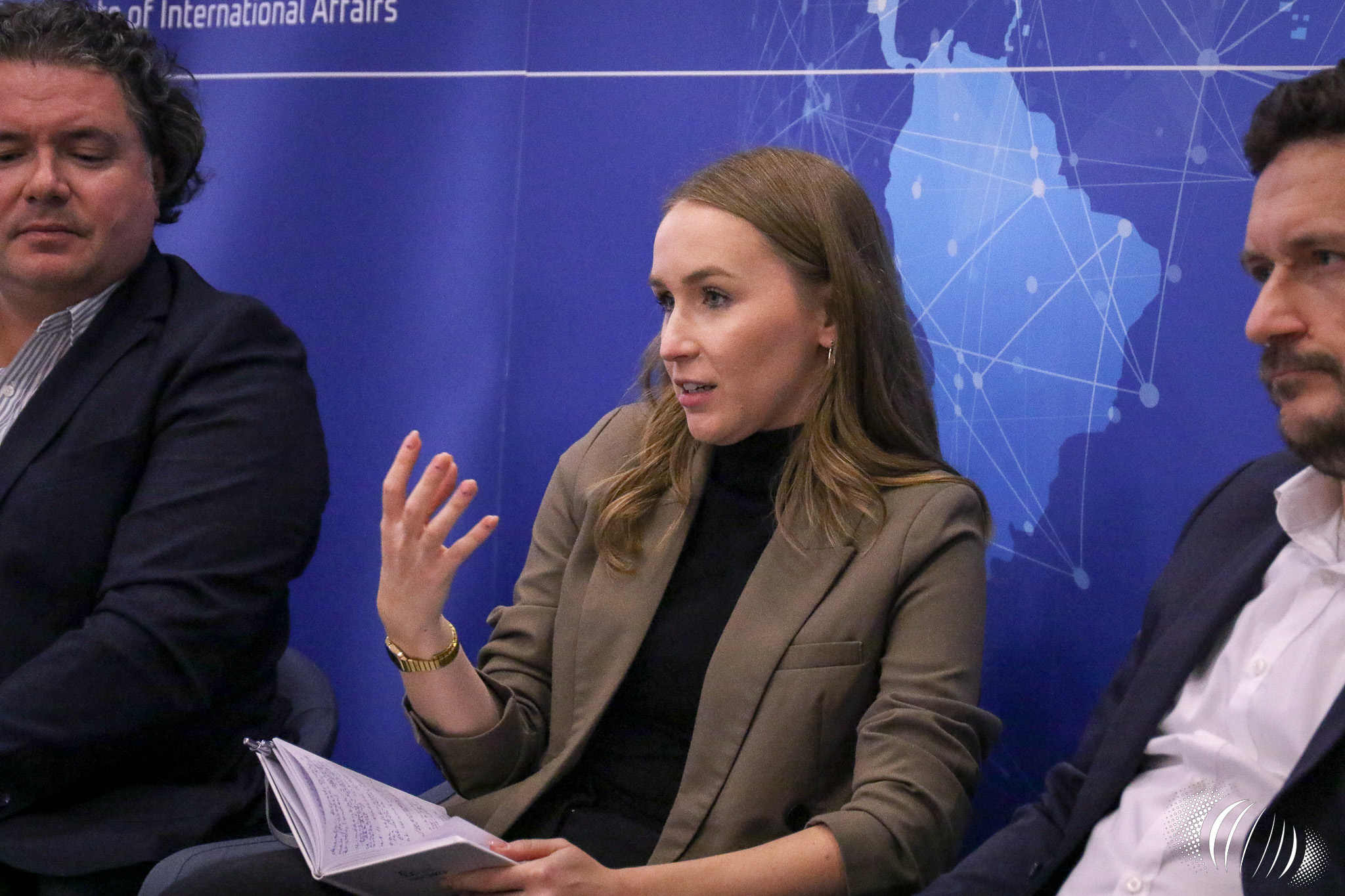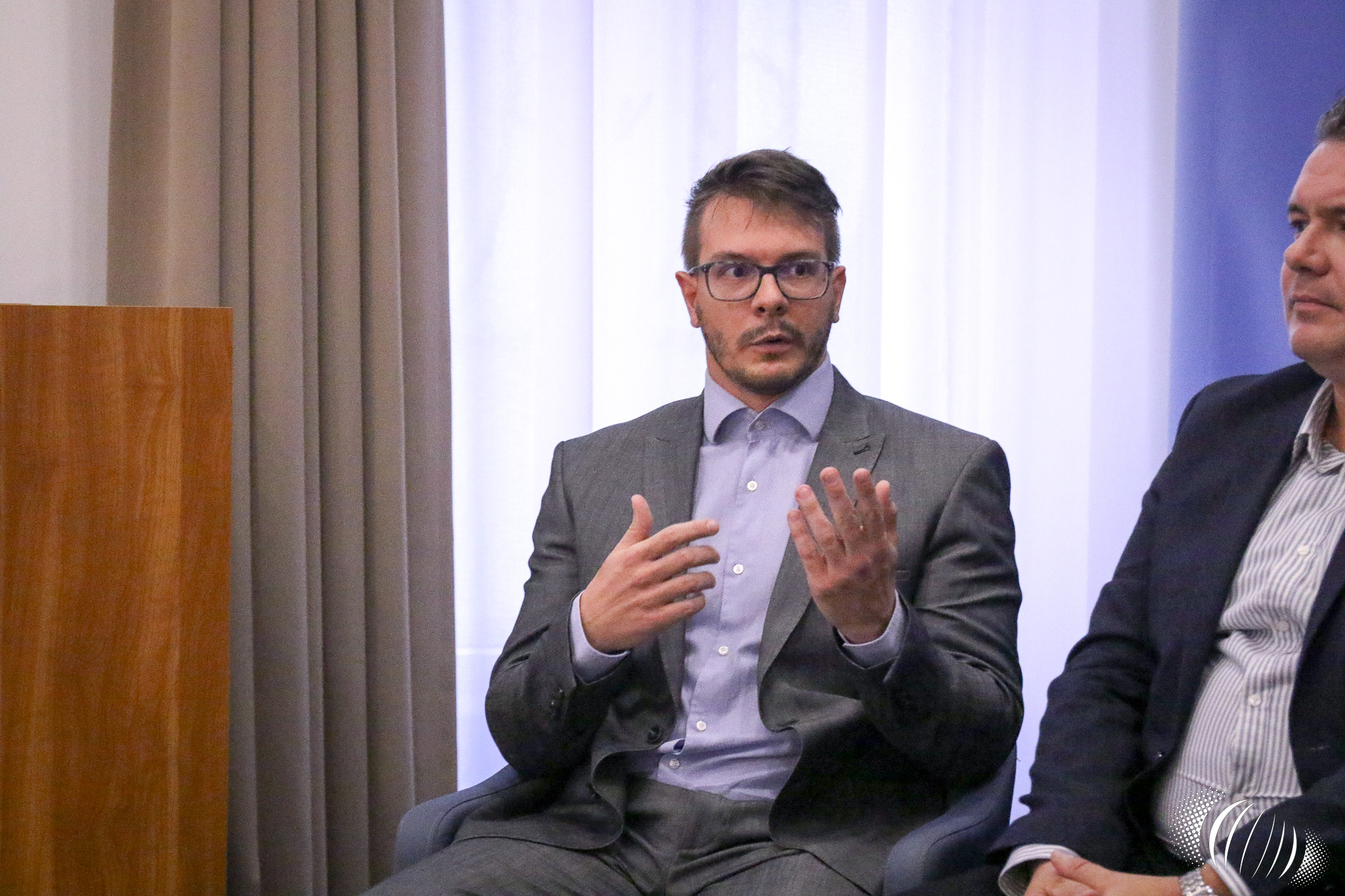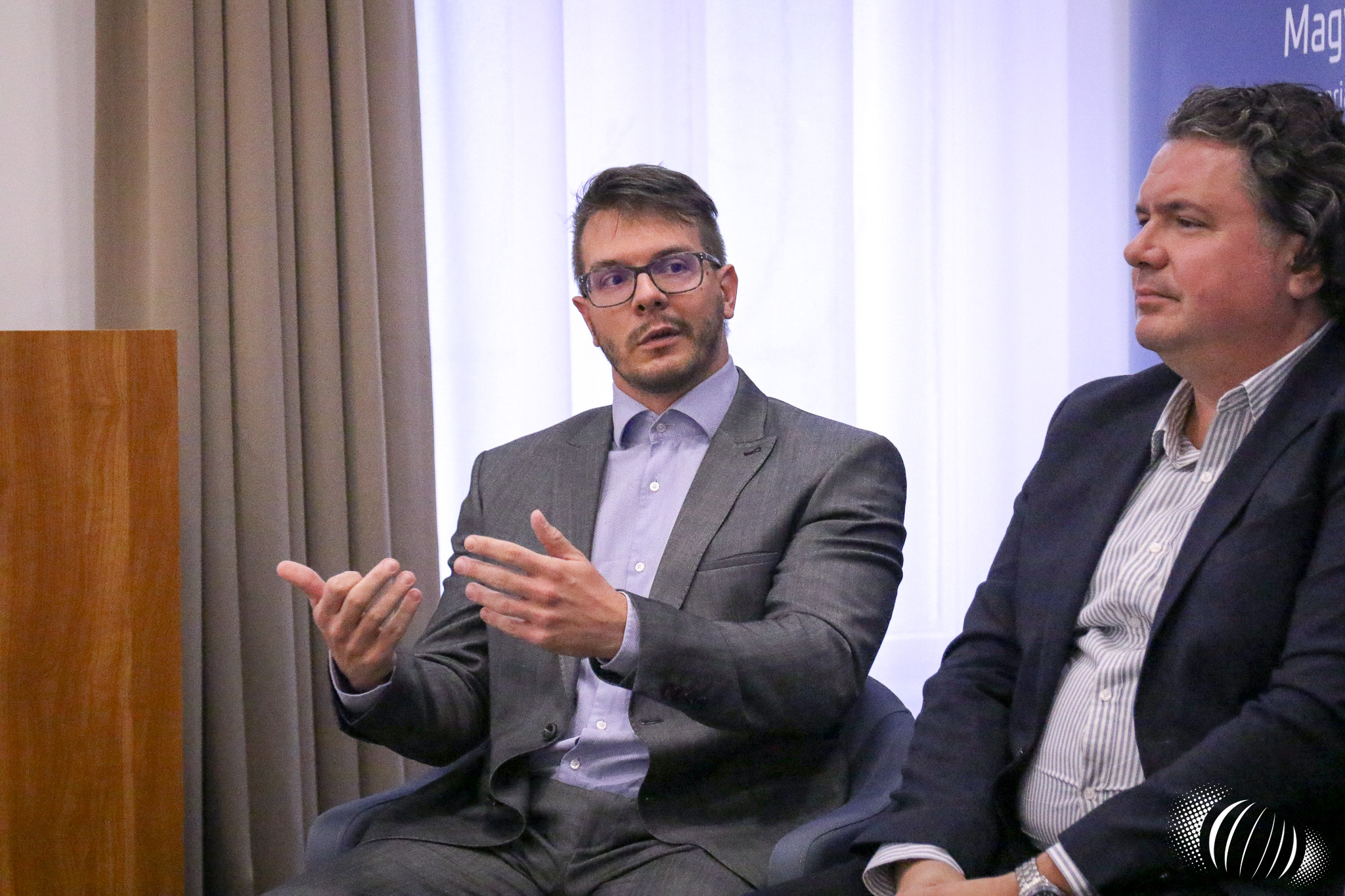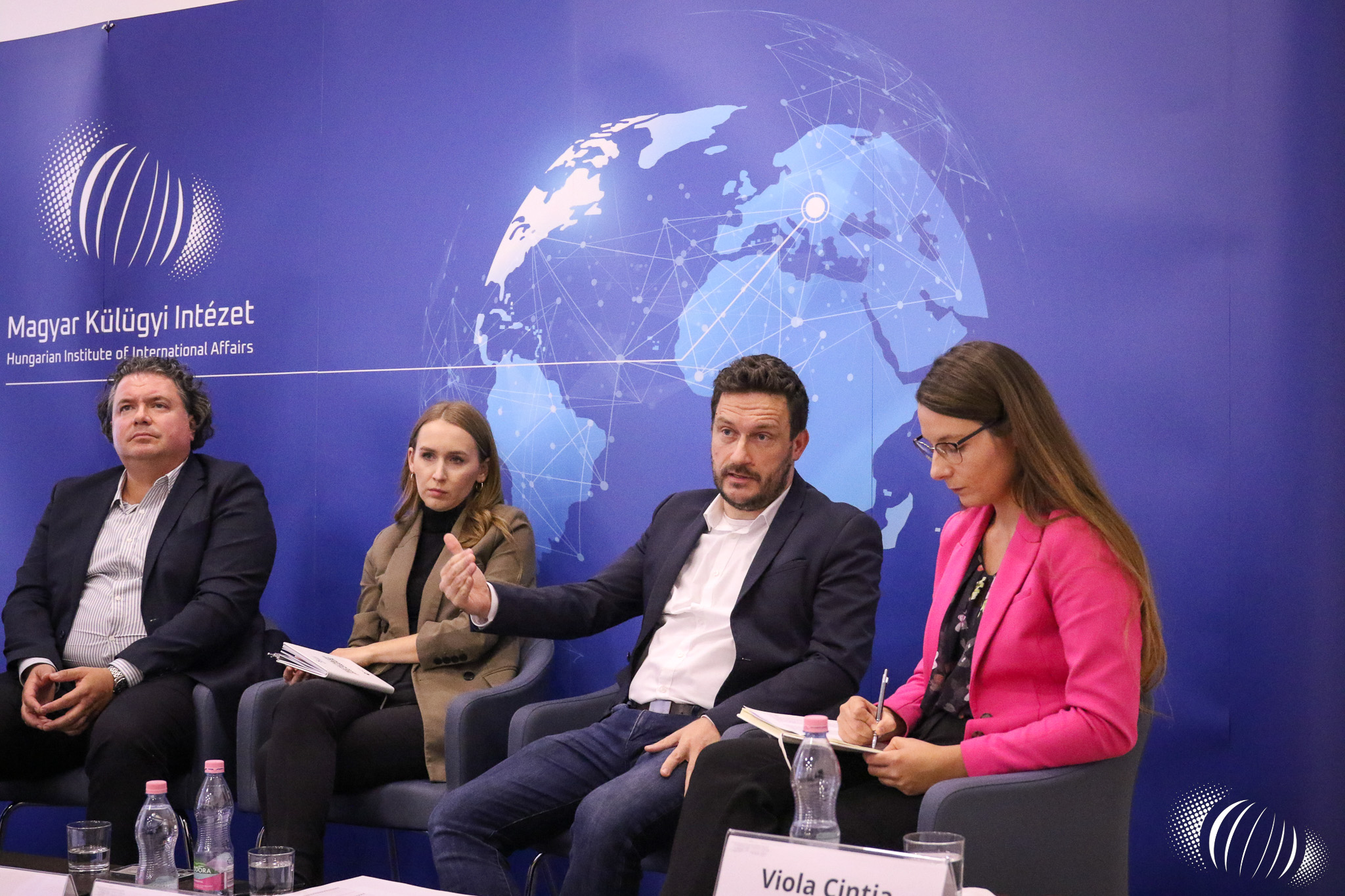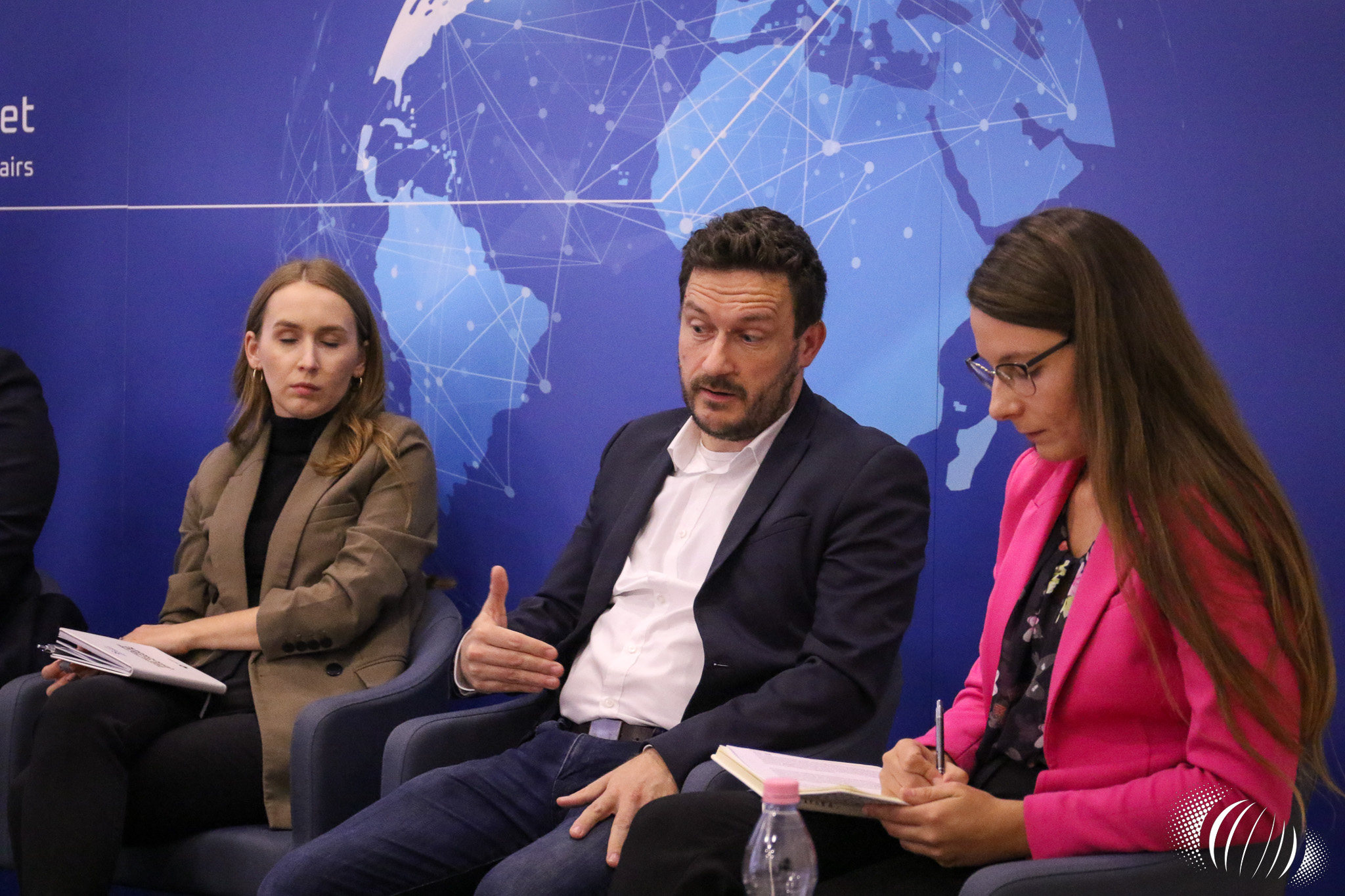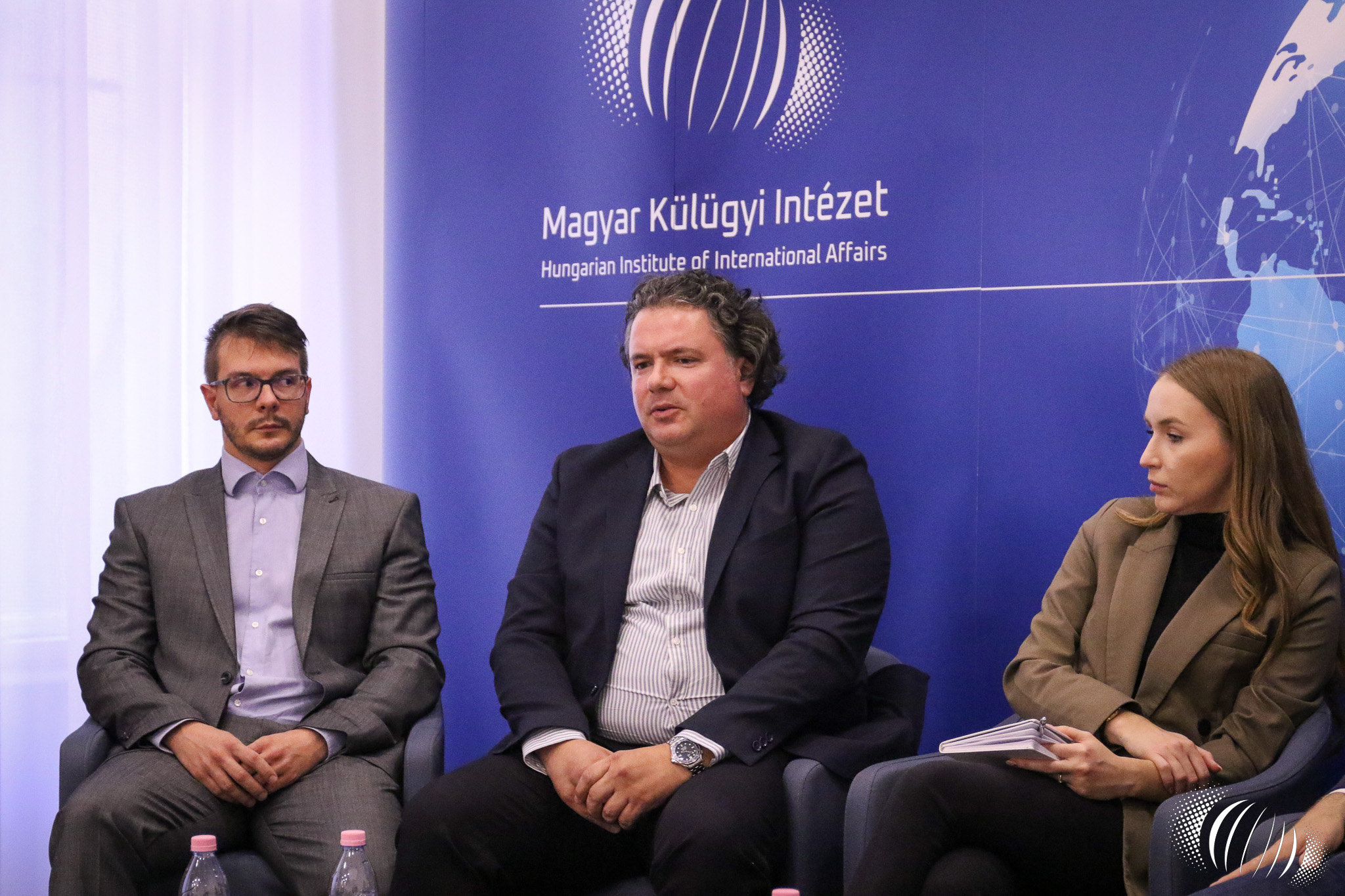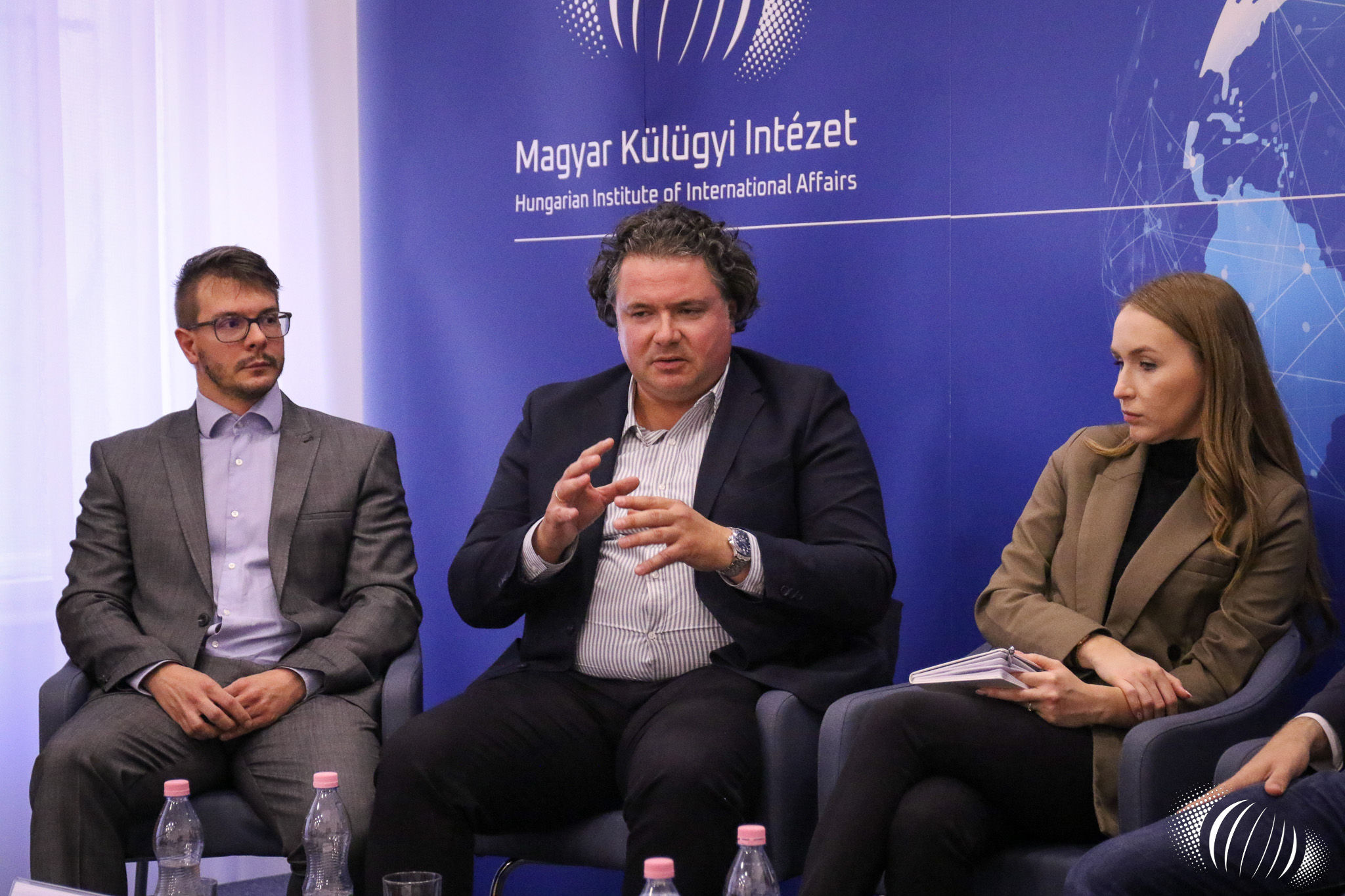The Hungarian Institute of International Affairs (HIIA) organized a roundtable discussion entitled “The Serbian gold mine: strategic partnerships in the shadow of lithium” on 7 October 2024. Participants of the discussion were Julianna Ármás and Gábor Papp, Research Fellows of HIIA, Attila Kovács, EU Expert, CEO of Eulytix, and András Jenei, Finance Manager of the Centre for Fair Political Analysis. The event was moderated by Cintia Viola, Research Fellow of HIIA.
In the introduction, it was explained that the Jadar Project for the extraction of Serbian lithium has been part of the Serbian political discourse for decades, but it was in 2021-22 that the project really came to the forefront of the political leadership. Julianna Ármás said that in 2021, political ambitions for mining in the Jadar river basin quickly became the focus of environmental groups. Mass protests erupted across the country and grew in size, with the government finally backing out of the project during the election campaign rush. The Research Fellow pointed out that “even though Serbia suspended the project in 2022, it was foreseeable that the Serbian government would not give up the profitable economic opportunity of lithium mining for good. In the same spirit, this summer the Serbian Constitutional Court ruled that the 2022 government decision to revoke Rio Tinto’s mining rights was unconstitutional. A few days after the decision, the Serbian government reached an agreement with the EU on the use of critical raw materials.” ”
Gábor Papp emphasized that the strategic agreement between Serbia and the EU, which is known as the “lithium deal”, does not mention lithium at all, but only the critical raw materials. The Research Fellow added: “ 80% of the EU’s lithium needs are imported, and 80% of that comes from Chile. From the lithium mined in Serbia, 58,000 tonnes of lithium carbonate are planned to be refined annually, enough for one million electric cars, which would cover roughly 90% of the EU’s lithium needs. Expectations vary, with a range of estimates of how much global lithium demand will grow by 2030. Some suggest a five-fold increase in global lithium demand, while others predict up to 90 times more. ”
Attila Kovács gave an illustrative example of the impact of Serbian lithium on the economy and energy policy of the European Union. The Expert said that if we want to contribute to a 1.5 degree reduction in global temperatures and to reduce the rate of global warming, the demand for lithium in the EU will increase twelvefold. “There are about 10 lithium deposits on the European continent, including Serbia, that could be used to meet Europe’s energy needs. But it will take years to bring a European mine on stream, while the EU would have to meet the growing demand year after year immediately.” The Expert underlined, “I don’t see Serbia joining the EU, let me be pessimistic about that now. In the next five years, Serbia is not really interested in accession, in fact this policy is convenient for the country, and since there is no clear economic benefit from the EU, it maintains relations with China and Russia.”
András Jenei pointed out that Serbia, like Hungary, sees itself as a kind of ferry country, and the Serbian balancing foreign policy can be interpreted in this narrative. As regards the importance of external actors, the expert stressed that ” if Rio Tinto develops the lithium mine in Loznica and production starts, the Serbian political leadership will think in vain that they will keep the extracted lithium within the border, but this will inevitably not be the case. Rio Tinto is a large international company that will sell the lithium to exactly whoever will pay the most money for it. If it’s China, then this Serbian lithium will go to China, and then the whole European effort will have gone down the drain.” The Manager pointed out, “a very serious question is how we can prevent the lithium from Serbia, which is meant to mostly reduce our dependence on China, not to be returned to the same place in some form.”

